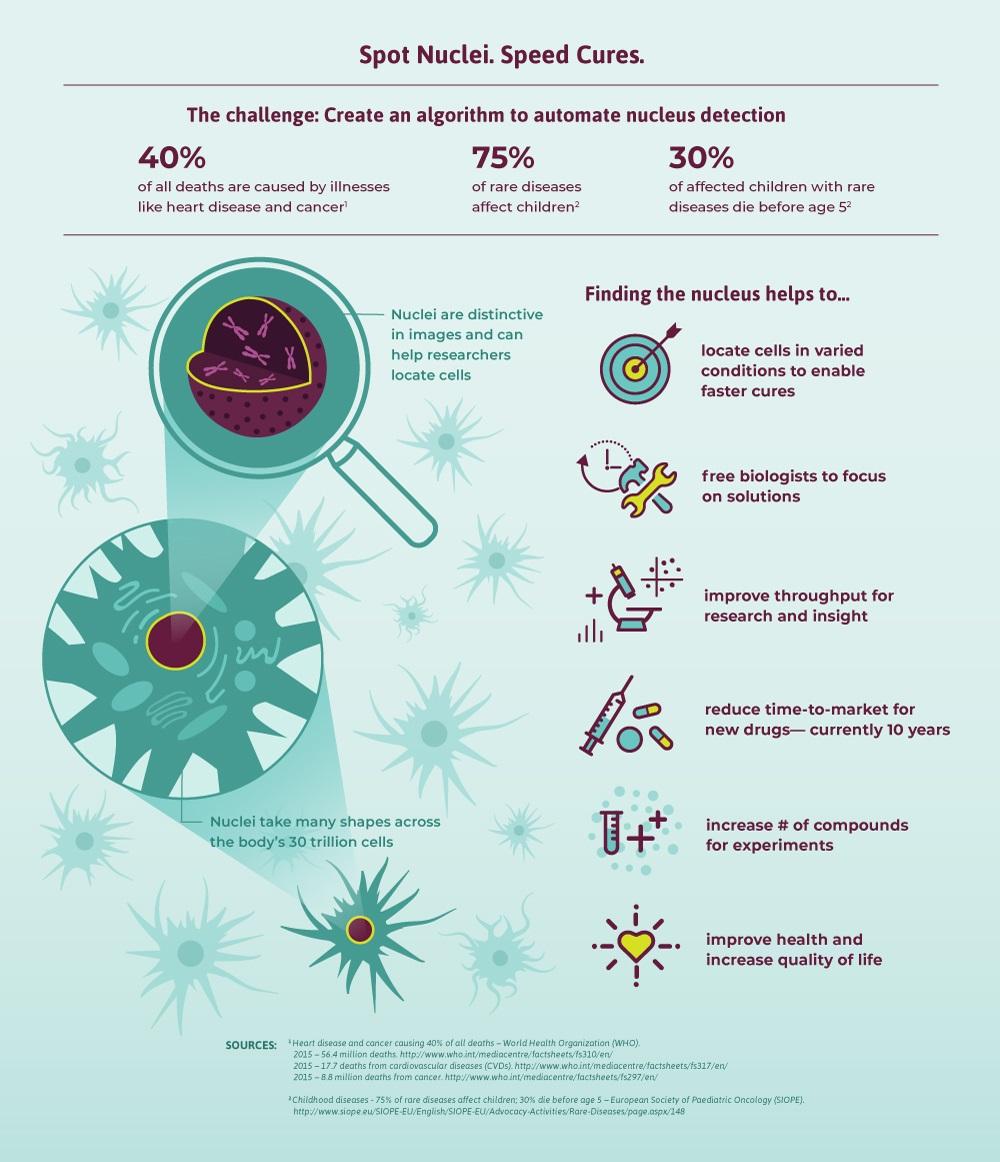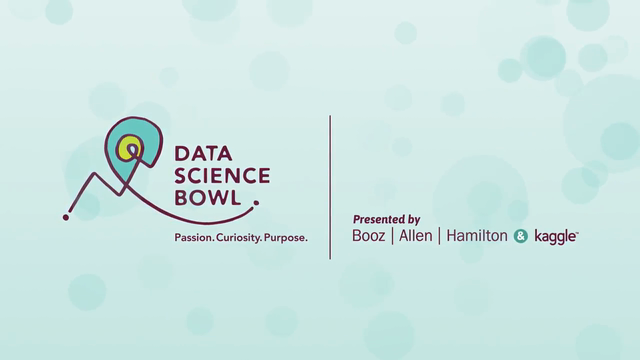Booz Allen & Kaggle’s Annual Data Science Competition Puts Artificial Intelligence to Work Accelerating Life-Saving Medical Research
Somewhere, buried in one of tens of millions of cell samples, could lie the next great breakthrough in disease prevention or cure. But one of the great barriers to finding it could be the need for human eyes to evaluate a corresponding mountain of cell images, one by one. In an era when terabytes of data can be analyzed in just a few days, the opportunity to enhance automation of biomedical analysis could help researchers achieve breakthroughs faster in the treatment of almost every disease—from cancer, diabetes and rare disorders to the common cold.
To spur this automation, Booz Allen Hamilton (NYSE: BAH) and Kaggle today launched the 2018 Data Science Bowl, a 90-day competition that calls on thousands of participants globally to train deep learning models to examine images of cells and identify nuclei, regardless of the experimental setup—and without human intervention. Creators of the top algorithms will split $170,000 in cash and prizes, including an NVIDIA® DGX Station™, a personal AI supercomputer that delivers the computing capacity of 400 CPUs in a desktop workstation.
“This year’s Data Science Bowl will bring together thousands of people from around the world to confront deadly diseases in one of our most complex challenges yet,” said Ray Hensberger, a Booz Allen Hamilton principal. “Despite some progress, it remains time-consuming and expensive to find treatments for all types of diseases. We believe that pairing artificial intelligence and the collective ingenuity of the global data science community will yield powerful tools that can help accelerate the search for medical cures.”
Past Data Science Bowls have tackled ocean health, heart disease and lung cancer—in which competitors trained algorithms to, among other things, measure key indicators of heart disease in seconds.
The 2018 Data Science Bowl At-A-Glance:
- Why does this challenge matter? All current options for nuclei detection require time-consuming biologist intervention. There are no deep learning models available today that can identify nuclei across multiple experimental setups and testing conditions. Finally, biologists often do not have the technical expertise nor the time needed to train their own deep learning models.
- What will participants do? The Broad Institute of MIT and Harvard, a non-profit biomedical and genomics research institute, will provide Data Science Bowl participants with data from thousands of nuclei from a wide variety of imaging experiments. Using this data, participants will create algorithms that can identify nuclei in any cell image, thereby expediting the detection process and allowing biologists to conserve time for other efforts.
- Which organizations are involved? The competition receives sponsorship and support from several leading health and technology organizations, including the Broad Institute, NVIDIA, and PerkinElmer, Inc.
"We’re proud to bring together some of the world’s top minds in a forum that harnesses data science for social good,” said Anthony Goldbloom, CEO, Kaggle. “This year’s competition will provide our global community with an exciting opportunity to transform biomedical research through new open-source solutions.”
To participate in the competition, please register and download the data set by visiting Kaggle.com. To learn more about the Data Science Bowl, including more information about past Data Science Bowl competitions, visit DataScienceBowl.com.



